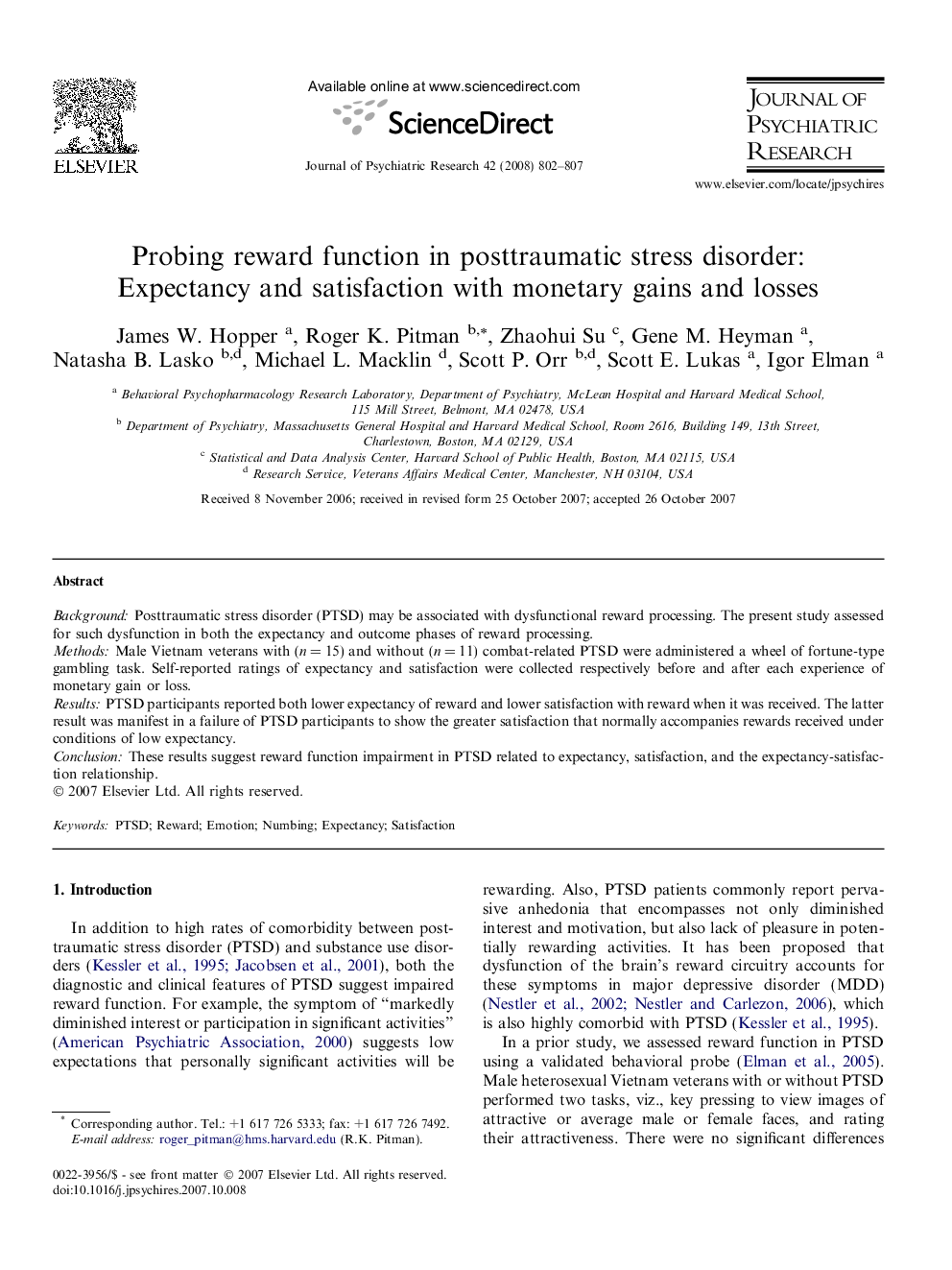| Article ID | Journal | Published Year | Pages | File Type |
|---|---|---|---|---|
| 328040 | Journal of Psychiatric Research | 2008 | 6 Pages |
BackgroundPosttraumatic stress disorder (PTSD) may be associated with dysfunctional reward processing. The present study assessed for such dysfunction in both the expectancy and outcome phases of reward processing.MethodsMale Vietnam veterans with (n = 15) and without (n = 11) combat-related PTSD were administered a wheel of fortune-type gambling task. Self-reported ratings of expectancy and satisfaction were collected respectively before and after each experience of monetary gain or loss.ResultsPTSD participants reported both lower expectancy of reward and lower satisfaction with reward when it was received. The latter result was manifest in a failure of PTSD participants to show the greater satisfaction that normally accompanies rewards received under conditions of low expectancy.ConclusionThese results suggest reward function impairment in PTSD related to expectancy, satisfaction, and the expectancy-satisfaction relationship.
